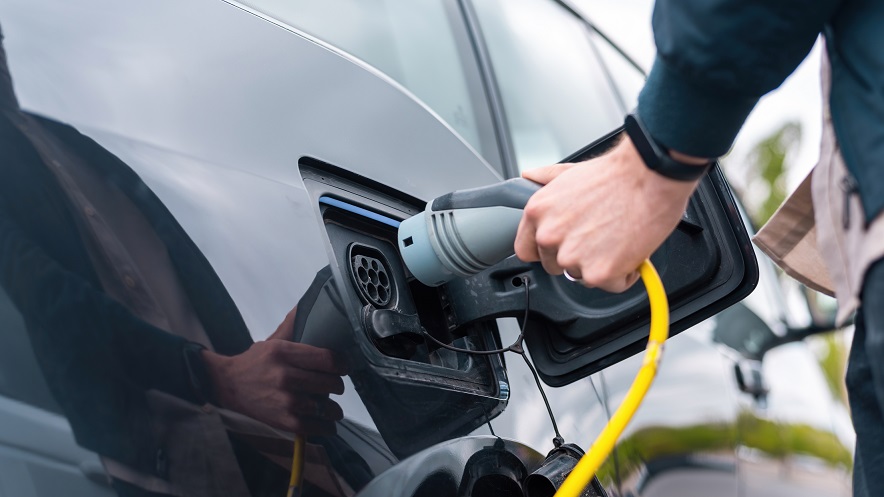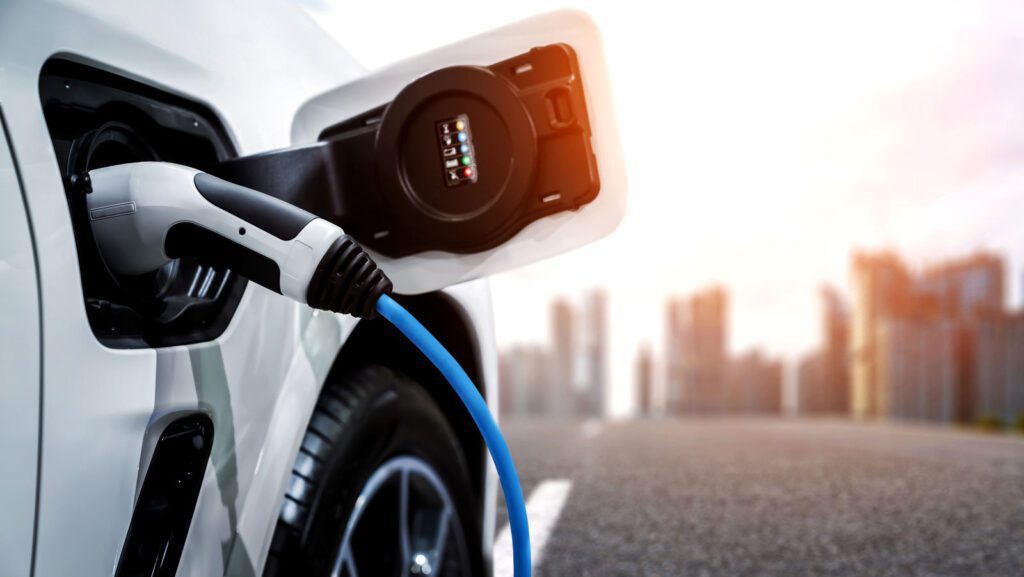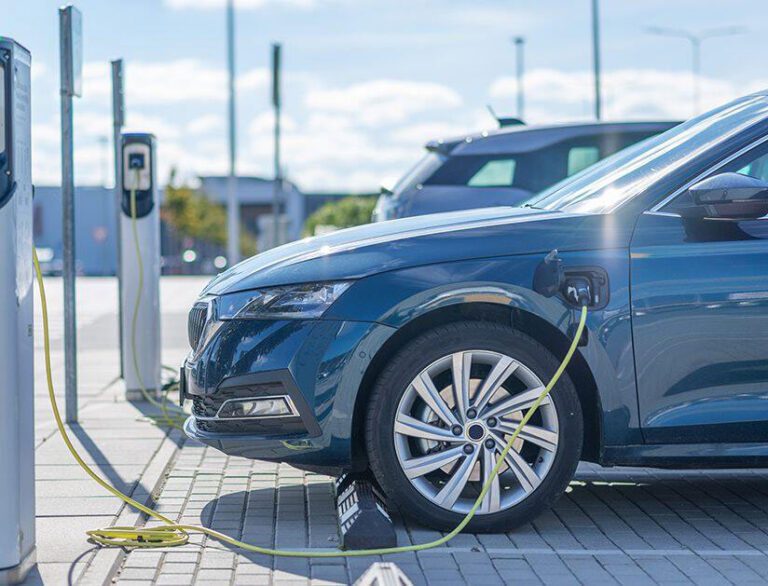EV Charger Installation Service Toronto
Professional EV Charger Installers In Toronto, ON
Did you know that electric vehicles (EVs) made up 14% of global car sales in 2022 (Transportation & Logistics, Statistica)? As EVs continue to gain popularity, there is also an increase in the need for EV charging solutions. The convenience of having an EV home charger to charge your vehicle at night encourages individuals to invest in this environmentally friendly mode of transportation.
Are you looking for an electric car charger and assistance with installation in Toronto? Langstaff & Sloan is ready to help! We have been providing top-notch electrical services since 1991 by providing our experience and excellence to each of our clients. We can assist you in the installation and maintenance of your EV charger at home to ensure that your home is safe and that your electric vehicle is taken care of.
EV Chargers for Individual Homes vs. Condos
Today’s housing options are plentiful, which allows individuals to find the right kind of home for them. Many people choose their home based on family needs, environment, distance from work or schools, and so many more factors that impact their everyday lives. Having an electric car charger should be hassle-free, regardless of the place you’ve chosen to call home, whether an individual residential home, a condo, or an apartment building.
Installing a single-family home electric vehicle charger is traditionally a simple feat. This is because the electrical panel can be found in the garage or close to an exterior wall. It is often linked to your home utility metering system, and it isn’t shared with any other parties. Any charging unit will be a great option. One of our talented electricians can install your purchased car charger in a snap.
Installing an electric charger in a multi-unit residential building can be more of a challenge, but there are steps we can take to make it simpler. While installing one charging station in your parking spot and connecting it to the outdoor panel is doable, it can lead to complications in the future if more residents transfer to electric vehicles. To avoid an unnecessary headache down the line, the following are excellent options that can be considered:
- Visitor stalls for everyone to use
- Install more stations with load-sharing technology
- First-come, first-serve EV charging stations provided at your condo
As a condo-owner, or even a condo-resident, beginning conversations about the interest in EV charging stations and the different strategies that can be considered for installation is a great way to understand how to work with us to add the best EV chargers Toronto for the property
Get a Safety Evaluation Before Installing a Home Electric Car Charging Point
Is your home ready to handle the high sustained loads that a home charging station will cause? A professional safety evaluation ensures your wiring, panel, and circuits can support EV chargers Toronto without the risk of overload.
Moreover, if upgrades are needed, knowing in advance allows you to plan for a smooth EV charger installation rather than having to deal with emergencies down the line.
Our licensed electricians in Toronto, ON will confirm your setup meets safety standards, helping you avoid code violations, insurance complications, and ESA non-compliance with EV home chargers.
Common Modifications Required for Electric Charger Installation in Toronto
It’s common for older homes and commercial properties to require minor modifications to be suitable for EV chargers in Toronto. Here are some common modifications:
- Panel upgrades – Many homes need a 200-amp service to support electric vehicle charging installation without overloading the system.
- Dedicated circuit installation – A separate circuit ensures stable power for your EV home charger.
- Wire and conduit upgrades – Proper gauge wiring and conduit protect against overheating due to prolonged EV charging in Toronto.
- GFCI protection – Ground fault circuit interrupters (GFCI) help prevent shocks and enhance safety.
- Load management systems – This smart load-sharing technology prevents strain on your electrical system due to home EV chargers.
Cost can be an important factor if you are considering investing in a home EV charging station or a home electrical upgrade. Our team provides transparent advice and will help you make an informed decision about your commercial or home car charging point.
Get Assistance with the Permit for EV Charger Installation in Toronto, ON
The Electrical Safety Authority requires a permit for EV charger installation in Toronto. Not only that, the work must be carried out by a qualified, licensed professional. Failing that, you may be required to remove the home car charging station, face a penalty, and even face issues with insurance.
Let a Licensed Electrical Contractor (LEC) handle EV car home chargers for you. Only LECs can legally file the necessary notification with the ESA before installing an EV charging station. Working with a professional ensures your charger is installed to code and passes inspection effortlessly.
Plus, get peace of mind that your Toronto EV charger installation is safe. Once the car home charging point is complete, you’ll receive an ESA Certificate of Acceptance—an official document confirming your charger meets all safety requirements.
Install a Safe Electric Car Charger for Your Home with Licensed Installers in Toronto, ON
EV charging stations in Toronto are high-voltage, high-current devices. You will likely be charging your EV overnight and leaving the charger plugged in when you’re away for longer periods. That’s why a home car charging station needs to be installed correctly. Work with us because we:
- Bring over 30 years of experience.
- Have Master Electricians as your partners.
- Maintain a 4.7 star (out of 5) rating with customers.
- Are a HomeStars Verified provider.
When it comes to your and your family’s safety, there’s no room for mistakes; install EV chargers in Toronto confidently with a top-rated team.
Things to Consider When Choosing Your EV Charger
Choosing the right electric car charger for your home depends on several factors, such as the type of home you live in and the kind of electric car you have purchased or are looking to invest in. To ensure that your home continues to be a safe place and your vehicle will be charged and cared for properly, the following elements should be taken into consideration when selecting your home’s new EV charging station:
Cord Flexibility: While such a small detail, it will go a long way in preventing any frustration or rigidity that could be caused by the daily task of charging your car. Having a cord that is 20 feet or longer will offer the flexibility to park and charge your car in either of the spaces within a two-car garage. It will also allow you to charge your car while it’s parked outside in the driveway.
Wi-Fi Connectivity: Some power users prefer to use ‘smart chargers’ or level 2 chargers that track the energy used for each session, calculate the cost of the electricity, and offer control over the charging session. These home car chargers use your house’s internet, which requires a strong connection to be effective.
Power: Ensuring that you have the right amount of power for a charging station’s power output is critical for the effectiveness of the EV charger. More power isn’t always better, which is why understanding the requirements for each EV fast charger, as well as how quickly it will charge your electric car is important.
Certifications: Trusted, independent safety organizations, such as Underwriters Laboratories (UL) or Intertek (ETL), are used to ensure electric vehicle chargers meet the industry standard. However, cheaper options occasionally forgo these certifications, which can lead to a faulty charger and, thus, more complicated, costly consequences. Keep your home and family safe by investing in the best home EV chargers that is certified.
Further, electrical knob and tube wiring is a system that was built on two-prong outlets. Today, many appliances require three prongs. This will require use of an adapter, which may also increase the chances of overloading your electrical system.
The cover on electrical knob and tube is also cause for concern. It can become brittle over time and risk exposing your wires, which is also a fire concern.
Finding EV Chargers Installer Toronto
If you’re looking for professional electrical services to assist in installing EV chargers at home, look no further than Langstaff & Sloan Inc. We specialize in residential services, and we strive to deliver exceptional customer service and electrical assistance for all our clients. Our team of residential and commercial electrical contractors embrace new/green technology with open arms, which is why we are the perfect choice to help with your EV home chargers.
Let’s get started today. Give us a call to book a consultation or speak to one of our representatives to discuss your needs.
Frequently Asked Question
A fully compliant and safe EV charger installation requires that an electric meter has an isolation switch. Isolation switches are essential for both you and our installers protection.
Depending on the model, the average distance of an EV on one charge is between 300km to 500km. That’s approximately 100 to 300 miles.
Generally, electric vehicle batteries last 10-20 years, but some factors may reduce their lifespan. For instance, batteries may degrade faster in hotter climates as heat does not pair well with EVs.
Two types of current can be used in EV. They are called alternate current (AC) and direct current (DC). The power that comes from the grid is always AC. However, batteries like the one in your electric vehicle can only store power as DC. That’s why most electronic devices have a converter. AC charging for EV: When it comes to EVs, the converter is built inside the car. It is called the “onboard charger “though it is a converter. It converts power from AC to DC and then feeds it into the car’s battery. DC charging for EV: DC chargers don’t need the onboard charger to convert. It can feed power directly to the car’s battery. DC chargers are bigger, costly, and require too much-connected load.
At home in a private garage/driveway, or a designated parking spot / shared parking facility (common for apartments). At work at your office building’s parking facility, either reserved or (semi)public. In public along streets, on the highway, and at any public parking facility you can think of – e.g., shopping malls, restaurants, hotels, hospitals, etc.
Very little. Despite being an advanced technology, EV charging stations are remarkably simple to maintain. If installed properly and built modularly (like EO2’s charging stations), every piece can be easily replaced. Charging stations with online connectivity also enable remote diagnostics and repair, so you won’t be left stranded in the rare event of charger malfunction.
Yes and no. Just like regular electricity outlets, charging stations may have different outlets and connectors depending on the country where you’re charging and your car brand’s origin. Luckily, to make things less complicated, car manufacturers and most countries have now reduced the options to just 2 types of outlets and connectors. From the car’s side, a Type 1 socket is common for Japanese and American vehicles, and a Type 2 socket is common for Asian & European vehicles.








